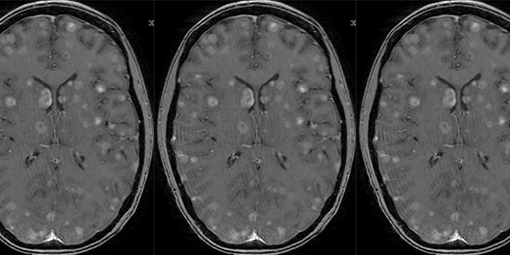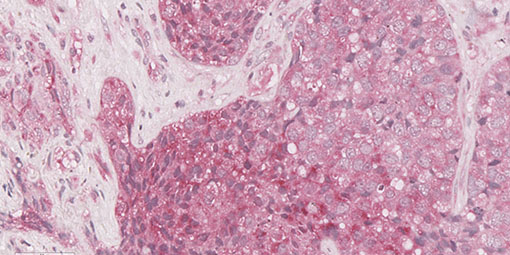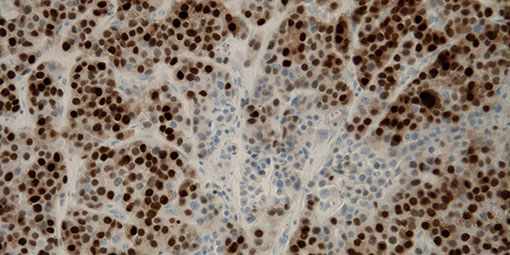Research
Exploring how cancer cells adapt to the brain microenvironment to prevent and treat brain metastasis
Deciphering the mechanisms underlying increased risk of brain metastases in younger women
Young women with breast cancer have an increased risk of developing brain metastases independent of the primary tumor subtype. We have shown a novel role for the premenopausal hormone estradiol, in the promotion of brain metastasis in younger women.
Elucidating the function of IL13RA2 in promoting proliferation of brain metastasis
Despite the substantial progress in defining general mechanisms by which cancer cells in solid tumors acquire the hallmark capability to metastasize, the extent to which phenotypic plasticity at metastatic sites contributes to metastatic progression remains poorly understood.
Defining mechanisms of radiation-induced toxicity during treatment of brain metastasis
The majority of patients with brain metastasis are treated with radiation as part of their standard of care. However, radiation induced toxicity has emerged as a critical side effect, particularly for patients receiving certain combinations of targeted therapies for their tumors.
Development of brain metastasis patient-derived xenografts
In collaboration with breast oncologists and neurosurgeons at University of Colorado AMC, we have developed xenograft models derived from breast cancer brain metastases from all breast cancer subtypes.




